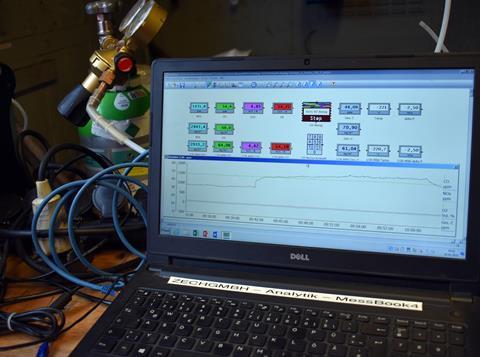
UK: DB Cargo UK has used a load bank at Toton depot to directly compare the performance and emissions from a Class 60 diesel locomotive when fuelled by hydrotreated vegetable oil and by conventional diesel.
A purpose-built exhaust extension tube was fitted to the locomotive to calm the exhaust gases. Nitrogen oxide, carbon monoxide, carbon dioxide, hydrocarbons and particle emissions were then measured in a standardised cycle at three load points when using diesel.
The fuel was then completely drained, and the locomotive refuelled with HVO and the measurements repeated to obtain a direct comparison.

‘If this round of testing shows that HVO fuel cuts emissions in a Class 60 locomotive with a 34-year-old engine in a similar way to more modern locomotives, this would prove that HVO is a viable and effective alternative’, said Jörg Schneider, Head of Climate Protection & Energy at DB Cargo AG. ‘Adopting HVO fuel in all diesel locomotives would then have a significant impact on the rail industry’s carbon footprint and overall air quality in the UK.’
Kathryn Oldale, DB Cargo UK’s lead for sustainability, said HVO ‘is the only credible solution to decarbonise rail freight today and requires significantly less investment than mass electrification in the short term’, but in the longer term ’we must see a programme for electrification of key routes across our network’.

![Freightliner 66503 with containers[1][1][1]](https://d1c4d7gnm6as1q.cloudfront.net/Pictures/100x67/2/8/9/67289_freightliner66503withcontainers111_851010.jpg)

![Freightliner 66503 with containers[1][1][1]](https://d1c4d7gnm6as1q.cloudfront.net/Pictures/100x67/8/4/2/61842_freightliner66503withcontainers111_851010.jpg)